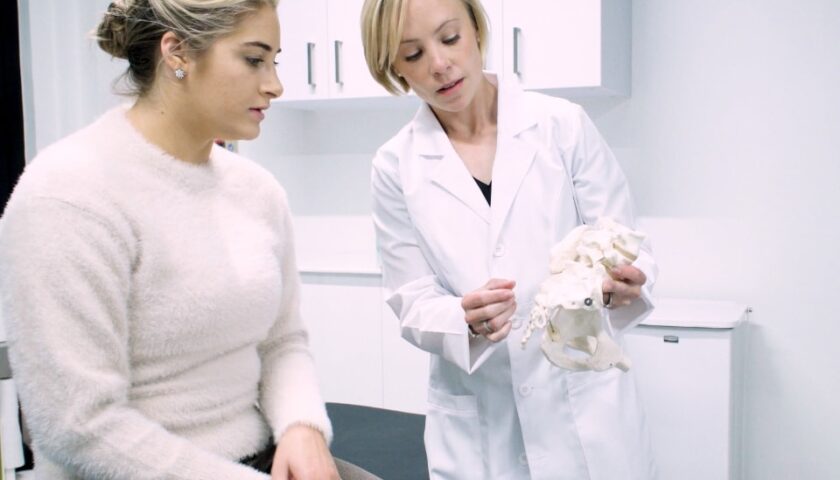Prenatal Care classes can help ease anxiety about giving birth. By removing unnecessary obstacles to joy during gestation, Prenatal Care classes help partners focus on what matters – celebrating this special time together!
Childbirth classes can typically be found through hospitals, birth centers and women’s health groups. Ob-gyns often recommend them for first-time parents.
Birthing Skills
Childbirth can be an unforgettable experience that you prepare for during your entire pregnancy, yet comes with many unknowns. That’s why prenatal classes are such an invaluable resource for new mothers-to-be – giving you information, allowing questions to be raised and providing an opportunity to network and make new connections – just like college did!
Childbirth classes come in many different formats, from in-person and virtual formats. Traditional in-person classes may be taught by obstetricians or midwives; alternatively doulas who specialize in supporting women during labor and delivery may provide instruction as well. Virtual options allow women to learn at their own pace while simultaneously connecting with an instructor and fellow pregnant women for support and advice.
Childbirth classes typically cover topics like body changes, preparation for labor and delivery, pain management strategies and breastfeeding. Classes often feature videos of real births or interviews with expectant mothers; additionally they often offer hands-on demonstrations on comfort measures and breathing techniques for both medicated and unmedicated deliveries, as well as cesarean sections.
Depending on the type of class you take, you may even create a birth plan with your instructor. By having a clear idea of your preferences for labor and delivery, this can help reduce anxiety levels during labor and delivery.
Your choice of childbirth classes depends heavily on what your ideal birth experience entails. Consult with ob-gyns or midwives, check with hospitals where you plan to give birth and ask other mothers who recently gave birth about what classes were helpful for them. Also read up online reviews of various kinds of childbirth classes to gain more of an idea what’s out there.
When choosing a class, it’s also essential to evaluate its philosophy and see if it aligns with your vision of an ideal birth experience. Reach out to instructors directly so you can verify whether their views match with those of you and your doctor.
Postpartum Care
No new baby comes with instructions, so learning to care for one can be daunting. This class gives parents the tools they need to keep their babies healthy – such as how to identify common infant illnesses; when and why to call a pediatrician; bathe, diaper and feed their newborn; plus safety/security protocols as well as how the stages of newborn development differ from others.
UCSF’s Great Expectations Program is offered both online and in person, and classes include two people to encourage participation by both partners of soon-to-be mothers. In addition, participation qualifies participants for diapers and car seats through MAYA Organization.
Pregnancy education is vitally important to helping women understand both the physiologic process of gestation and its associated risks, as well as any special considerations they should be taking during gestation. Many models have been created to facilitate patient education – including group prenatal care services and childbirth education classes – which have proven effective at improving perinatal outcomes.
Gathering patients with similar needs together for health care encounters allows more time for educational components of visits, improves efficiency and decreases repetition. Studies indicate that group visits increase time allocated for educational components of visits while improving efficiency and decreasing repetition. Evidence also suggests that participation increases prenatal knowledge, prepare more effectively for labor and delivery, satisfaction with overall healthcare services as well as breastfeeding initiation more frequently among participants.
U.S. states have generally established fee-for-service reimbursement for group prenatal care services, though particular models can be complex to implement due to issues of group formation and maintenance, training for obstetricians and other providers of maternal health services, and meeting space availability.
Recently, group prenatal care has grown increasingly popular as an effective means of providing prenatal education and health promotion content. Based on the premise that pregnancy is an organic physiologic event and not a disease state, group prenatal care emphasizes patient-centric communication between healthcare professionals and pregnant patients which allows patients to fully participate in their pregnancy journey.
Breastfeeding
Breastfeeding provides newborns with essential nutrition for immunological, psychological and developmental development. While breastfeeding may seem intimidating for new parents, the process doesn’t always go smoothly – therefore a prenatal class may help prepare parents for labor and delivery as well as initiate and sustain breastfeeding from day one. Furthermore, parents can gain insights into what awaits after baby arrives – all essential knowledge.
Studies demonstrating the advantages of breastfeeding education during pregnancies are well documented, with studies showing improved outcomes such as increased rates of breastfeeding at six months and fewer maternal complications. One recent study concluded that participants who attended breastfeeding classes were 75% more likely to continue breastfeeding compared to those who hadn’t.
As Turner notes, breastfeeding classes can be beneficial at any stage in a pregnant woman’s gestation; however, early enrollment may prove invaluable in overcoming breastfeeding barriers such as personal thoughts and feelings, strong opinions from family or friends, physiological concerns (breast size or shape, or previous medical procedures), medication use (birth control or thyroid medications, for instance), situational concerns (early return to work or caring for other children etc).
Maternity educators can provide new parents with evidence-based breastfeeding information, various breastfeeding positions, and how to support mothers in creating an optimal latch. Furthermore, a lactation consultant can assist mothers in recognizing and overcoming any potential barriers to successful breastfeeding success.
Breastfeeding classes before your delivery may help lower the likelihood of being readmitted to neonatal intensive care unit after birth, which could result in interrupted or unscheduled feedings that hinder milk production. Hospitals will do everything possible to support breastfeeding mother, including providing rooming-in facilities and pumps so she can feed both her newborn as well as formula as needed.
Grandparents and future grandchildren are welcome to attend this two-hour infant care and CPR class with their future grandchild, designed as both a “refresher course” for newborn care at home, as well as information regarding when, why and how newborns need care at home. Topics discussed may include basic infant care – bathing and diapering; when to contact a doctor or nurse; when symptoms indicate illness for emergency attention and how best to protect the household against babyproofing issues – along with house safety proofing techniques.
Infant CPR
Infant CPR training can be an essential lifesaving skill. Many prenatal care classes that provide certification include this essential training; others may offer it entirely online; check with your hospital or childbirth educator to find out which class would work best for you.
If a live course is too much of a commitment for you or you require greater flexibility, the American Red Cross offers an online version of its Infant CPR and first aid class which provides a printable cheat sheet at the end as a handy reference guide. It is an ideal solution for parents or other caregivers responsible for an infant but who cannot take time off work.
BabySkills online course from ProTrainings is another popular option, providing two years of certification upon completion (with free renewal). Although not as comprehensive, this straightforward and user-friendly class makes learning about key skills simple.
Tinyhood offers an infant CPR and choking online class, which doesn’t lead to certification but covers the same material. Through short videos that focus on various aspects of CPR and choking relief for infants aged 1-6 months.
Banner’s Sibling Classes offer the ideal way for young children to prepare for the arrival of their new sibling. Through discussion and educational play activities, children learn what awaits them at both mom’s hospital stay as well as from their new sibling.
Many hospitals host community workshops covering topics like breastfeeding basics, safe sleep practices and installing your child’s car seat. These events provide expectant parents who may feel overwhelmed by all of the information available from books, blogs and the internet a chance to ask questions directly and hear from experts in various fields; many even offer useful giveaways like blankets or toys as part of these sessions.





